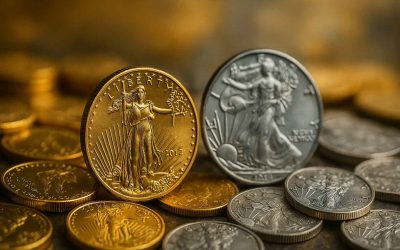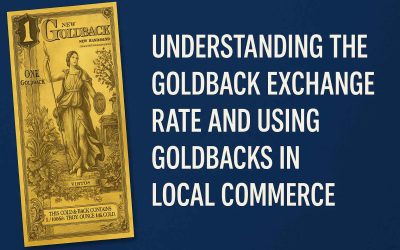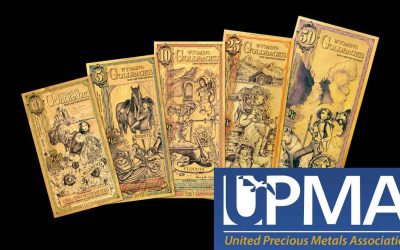Money is a foundational concept in economics and daily life, yet its true nature is often misunderstood. While many use the terms “money” and “currency” interchangeably, they represent distinct ideas with significant implications for wealth preservation and economic stability. This article delves into the essence of money, differentiates it from currency, and underscores the importance of sound money—particularly gold and silver—as reliable stores of value.
What Is Money?
At its core, money serves three primary functions:
- Medium of Exchange: Facilitates transactions by eliminating the inefficiencies of barter systems.
- Unit of Account: Provides a standard measure for pricing goods and services.
- Store of Value: Maintains its purchasing power over time, allowing individuals to save and plan for the future.
Historically, various items have served as money, from cattle and salt to shells and stones. However, precious metals like gold and silver emerged as preferred forms due to their durability, divisibility, portability, and intrinsic value. These metals are not only universally recognized but also resistant to corrosion and degradation, making them ideal for long-term wealth storage.
Money vs. Currency: Understanding the Difference
While closely related, money and currency are not synonymous:
- Money: An intangible concept representing value and serving the three functions mentioned above.
- Currency: The physical manifestation of money, such as coins and paper notes, used to facilitate transactions.
In modern economies, most currencies are fiat currencies, meaning they are not backed by physical commodities like gold or silver but derive their value from government decree and public trust. This system allows central banks to manage the money supply but also introduces risks like inflation and currency devaluation.
The Importance of Sound Money
Sound money refers to money that retains its value over time, providing a stable foundation for economic transactions and personal savings. Gold and silver exemplify sound money due to their intrinsic value and limited supply.
In contrast, fiat currencies can be subject to inflationary pressures, especially when governments increase the money supply without corresponding economic growth. This erosion of purchasing power can undermine savings and lead to economic instability.
For instance, the U.S. dollar has lost a significant portion of its purchasing power since the Federal Reserve’s establishment in 1913. While a $10 gold coin from that era contains approximately 0.4838 troy ounces of gold—worth over $800 today—the equivalent paper currency has not maintained its value.
Gold and Silver: Timeless Stores of Value
Gold and silver have been trusted stores of value for millennia:
- Durability: They do not corrode or degrade over time.
- Divisibility: They can be minted into various denominations to facilitate transactions.
- Portability: They are compact and easy to transport.
- Intrinsic Value: Their value is recognized globally, independent of any government’s backing.
These attributes make precious metals a hedge against inflation and currency devaluation. Investors often turn to gold and silver during economic uncertainty to preserve wealth.
Modern Implications and the Path Forward
The distinction between money and currency has profound implications for personal finance and economic policy. Relying solely on fiat currency for savings exposes individuals to inflationary risks. Incorporating sound money principles—such as investing in gold and silver—can enhance financial resilience.
Moreover, understanding these concepts can inform public discourse on monetary policy, government spending, and economic stability. As history has shown, sound money practices contribute to sustainable economic growth and protect individual wealth.
Conclusion
Recognizing the differences between money and currency is crucial for financial literacy and economic well-being. While currency facilitates daily transactions, sound money—embodied by assets like gold and silver—serves as a reliable store of value, safeguarding wealth across generations. Embracing sound money principles can empower individuals to make informed financial decisions and contribute to a more stable economic future.
Disclaimer: Royal Leo Holdings, LLC and GoldbackInfo.com are not registered financial advisors. All content on this site is provided for informational and educational purposes only and represents our own opinions—not financial advice. You should consult a qualified professional before making any investment decisions.








0 Comments